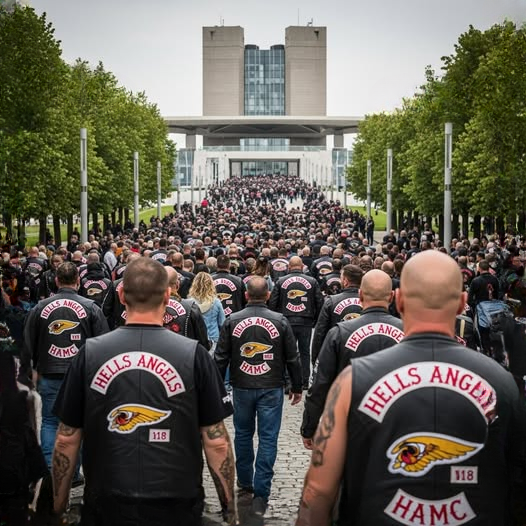The day I lost my son, Danny, a quiet settled over my house that was heavier than anything I had ever felt. I’d spent more than thirty years as a janitor at Jefferson High School, quietly observing the laughter, the heartbreak, the small triumphs and cruel lessons that came with adolescence. I thought I knew what kids carried in their hearts—their fleeting joys, their petty rivalries, even their unspoken fears. But nothing prepared me for the day I found my fifteen-year-old boy hanging from the basketball hoop we had built together in the backyard. The note in his pocket, listing four names, was a damning confession of the torment he endured.
Those four boys weren’t strangers; their fathers were prominent figures in town, polished and polite in public, protective and indulgent at home. They were the kinds of men who smiled and nodded, claiming their sons were good kids while they left scars no one else could see. Danny had been kind, creative, and gentle—a spirit too delicate for the cruelty hidden behind small-town facades. They mocked him relentlessly online, tore apart his projects, and laughed at his smallest failures. His pain had grown silently until it became unbearable, a weight I only understood too late.
After the police dismissed the situation as “kids being kids” and the school offered counseling instead of accountability, the sense of helplessness became unbearable. The night after his death, the house felt hollow. The air was thick with unspeakable grief. Then the phone rang, slicing through the silence like a lifeline. Jack Morrison’s voice was firm but calm. He was the leader of the Iron Wolves Motorcycle Club, and he said something I would never forget: “We lost my nephew the same way. If you want us at the funeral, we’ll ride for your boy.”
The following day, the sound arrived before the sight: the distant thunder of dozens of motorcycles growing louder as they rolled down our quiet street. Fathers, uncles, cousins, and brothers of children who had known pain stood together in solidarity. They didn’t speak to intimidate, and they didn’t shout. They simply arrived as a living, breathing acknowledgment of grief, of loss, and of a truth too often ignored. Their presence created a wall of witness, a silent statement that Danny’s suffering mattered, that his life deserved to be honored.
When the four boys and their influential parents arrived at the funeral, the bikers’ presence was palpable. No words were exchanged; none were needed. Danny’s classmates, teachers, and neighbors felt the weight of recognition, the communal understanding that what had happened could not be dismissed. It was a quiet defiance, a collective reminder that cruelty leaves scars that must be acknowledged, that loss must not be silenced by status or power.
The funeral was more than a ceremony—it became a turning point. Photos from the day, capturing the ironclad lines of motorcycles and the silent vigil, quickly spread across social media. People everywhere resonated with the imagery of compassion, strength, and defiance. In that moment, grief transformed into a movement, one that demanded recognition and action for the invisible wounds inflicted on children everywhere.
From the ashes of sorrow, The Ride for Danny was born. The Iron Wolves began visiting schools, holding assemblies, offering resources to families, and advocating for anti-bullying legislation. Their roar was no longer merely the sound of engines—it became a clarion call for justice, visibility, and protection. Communities rallied around the mission, inspired by a simple yet profound truth: every child deserves to be seen, to be protected, and to be valued.
The legislation that followed became known as Danny’s Law, a framework designed to address bullying both online and in schools, ensuring accountability for both perpetrators and the institutions that overlook cruelty. Families reached out, schools adopted new programs, and children once overlooked now had champions fighting on their behalf. Danny’s legacy, born from unimaginable tragedy, began to transform countless lives.
Through all of it, I never forgot his passions. Danny had loved building things—treehouses, model airplanes, anything that could make the world brighter and better. Now, those creations live on metaphorically through the acts of compassion sparked by his death. Every school program, every ride, every policy change carries a piece of him forward, a continuation of his quiet, creative spirit in the world.
Even today, when I see bikers rolling into towns or families gathering to honor children, I feel Danny’s presence. He lives in the laughter of children who feel safe, in the courage of parents who speak out, in the steadfast dedication of those willing to ride for change. His story is no longer confined to a single backyard; it has become a living testament to the power of community, love, and the refusal to let tragedy be invisible.
The grief remains, sharp and unyielding, but it is tempered by purpose. What could have been only sorrow has been transformed into advocacy, awareness, and hope. Danny’s name resonates far beyond the house we once shared—it resonates in schools, in legislation, and in hearts willing to confront cruelty with courage. The silence of loss has been replaced by the roar of action.
In the end, my son’s life, though brief, became the foundation for a movement that teaches the world about empathy, resilience, and unwavering love. He continues to build, not with wood or nails, but with the compassion he inspired, the courage he ignited, and the relentless drive of a community that refuses to forget. Danny’s legacy is a monument not just to his life, but to the enduring power of love in the face of grief.
